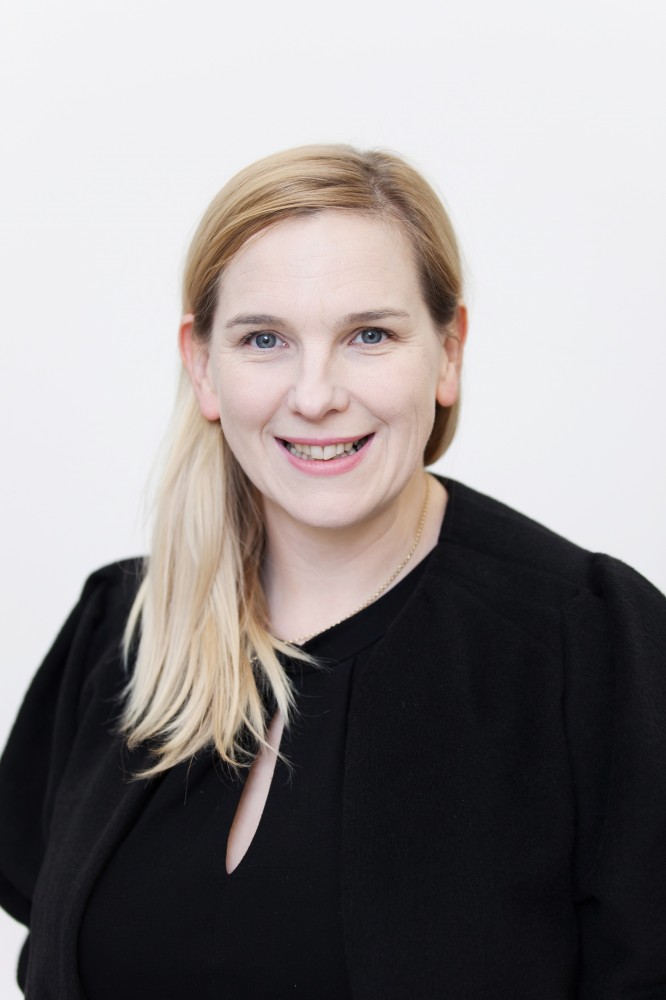Dr Elin Haf Davies is a FLIER Programme participant and CEO at Aparito, a tech-enabled company that provides remote patient monitoring using smart phone apps and wearable devices. 
I worked as a children’s nurse for just over a decade and became involved in looking after children recruited into clinical trials. That triggered my interest in research, so I did my degree, then a Master’s in research methods, and I went on to do my PhD looking for new outcome measures in clinical trials.
After that, I become a regulator at the European Medicines Agency. That was really interesting in terms of learning how regulators assess clinical trials and the data submitted for marketing authorisation of a new drug.
I left the EMA to start my own company, Aparito. Everybody thought I was absolutely mad to leave the EMA because it’s such a great employer, but I guess I was frustrated that we weren’t able to change clinical trial study designs in the way that I wanted to.
Aparito is a digital health company that I founded to create new ways of monitoring patients during clinical trials. I was looking at more passive and remote data capture, to stop having to bring patients all the way to hospital to do long and painful tests.
One of the diseases we’re looking at is complex epilepsy in children, specifically in South Africa where medical adherence is really difficult because of social stigma and people not really believing that there’s a medical cause for the seizures. Also, geographically, patients have to travel for hours and hours to get to the hospital. They never have the seizures in the clinic in front of the doctor, so they use our technology to video the seizures and to explain the reason why they don’t always take their medication.
Being a founder CEO of start-up is a bit of lonely place. I applied for the FLIER programme to find new learnings and a new support network. Our business model is quite complex; pharmaceutical companies pay for it, but clinicians and doctors use it, and obviously patients are the most important users. So, we have to do a huge cross collaborative effort to get everybody on board.
In my role, I try to speak to all these different people. I need to understand what motivations and barriers they all have. But also, on a very individual level, I was just needing a bit of time out to really develop my own skills, catch my own breath, and develop a network for learning and support around me.
The course has been very much about understanding my own personal character traits, what motivates me and gets me excited, and what makes frustrated. The residential courses have been super valuable in forcing us to take time out and give us thinking space. It helped me remember what I’m trying to achieve and why I built Aparito, and reminded me that it’s about creating a better patient experience in clinical trials.
Clinical trials are designed around clinical outcomes, and these don’t always reflect what’s important to patients. That’s a big issue. The choice of outcomes often means the whole patient experience is far from ideal. Then there’s the day-to-day practicalities of frequent travel to a hospital site that’s often far away. There are very long times spent in hospital, waiting around for different tests and assessments while you’re in the hospital. We need to take away some of that burden.
I did not start this company because I wanted my own company per se. Very naïvely, I just started it as a legal entity to try and do what I wanted to do. My goal is to enable completely patient-centric, remote, passive clinical trials that allow us to see the efficacy and safety of a drug, seamlessly and quickly. What shape that goes in in the next few months and years, I’m still learning.
Dr Elin Haf Davies is a participant in Round 1 of the Academy of Medical Sciences’ FLIER Programme, a unique programme that will develop leaders of the future who can create collaborations across academia, industry, the NHS and government to drive innovation.
The FLIER Programme is generously supported by the Dennis and Mireille Gillings Foundation and the Government Department of Business, Energy and Industrial Strategy ‘Investment in Research Talent’ fund. If you would like to support the work of the Academy to develop talented researchers, visit our Supporters page.
